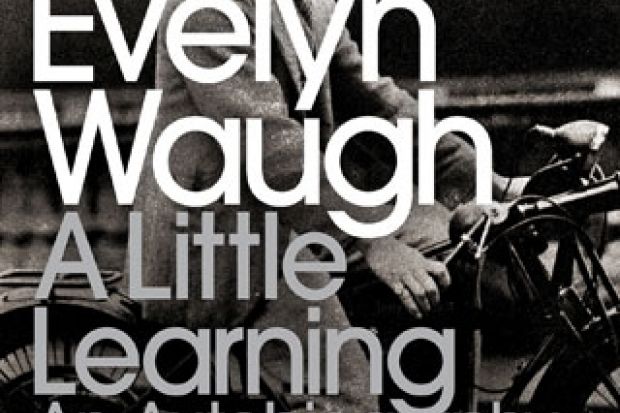Sir David Eastwood, vice-chancellor, University of Birmingham, is reading Evelyn Waugh’s A Little Learning: An Autobiography (Penguin, 2010). “A friend described reading Waugh as ‘guilty pleasure’. This autobiographical fragment is indeed pure literary indulgence. The writing has an economy and elegance that is as rare as it is beguiling, and the effect is like a fine wine. The narrative takes us from home to school and through Oxford, to failure as a teacher. We are left on the cusp of Waugh’s emergence as a truly great novelist. If only there had been a second volume – but guilty pleasures should leave us vainly hoping for more.”

James Kneale, senior lecturer in geography, University College London, is reading Annemarie McAllister’s Demon Drink? Temperance and the Working Class (Kindle, 2014). “A welcome corrective to the idea of Victorian and Edwardian temperance as a bourgeois imposition; springing from radical, nonconformist roots, temperance encouraged ordinary men, women and children to see themselves as agents, not victims. The book includes dozens of fascinating and affecting images of teetotal life and material culture. And it’s cheaper than a (London) pint! I’d love to see this in print, too.”

David Lewin, senior lecturer in philosophy of education, Liverpool Hope University, is reading Bernard Stiegler’s Taking Care of Youth and the Generations (Stanford University Press, 2010). “Watching an infant deftly operate an iPad makes one wonder about the pace and power of technological change and the consequent impact on young minds. These changes take time to understand and absorb. But Stiegler suggests that we will never be able to do so if those very changes are eroding our critical faculties. Alarmist or alarming? I can’t quite decide.”

Lisa-Marie Shillito, early career fellow in archaeology, University of Edinburgh, is reading Aleksander Pluskowski’s The Archaeology of the Prussian Crusade: Holy War and Colonisation (Routledge, 2012). “I’m involved with laboratory analysis for a European project on the ecology of crusading, and am currently writing that research into my new undergraduate course. I’m reading this book as a background to the historical and archaeological context of the Prussian crusades. It’s a fascinating insight into events that are relatively unknown compared with their famous Middle Eastern counterparts.”

Sharon Wheeler, senior lecturer in journalism, University of Portsmouth, is reading Armistead Maupin’s The Days of Anna Madrigal (Transworld, 2014). “Some books encapsulate an era, and if you were brought up in the 1980s on Maupin’s San Francisco series, you’ll remember Mrs Madrigal, Brian, Michael and Mary Ann fondly. They’re back for what looks like a final road trip to the Burning Man festival, accompanied by Maupin’s exquisite dialogue. Now please excuse me, I appear to have something in my eye…”
Register to continue
Why register?
- Registration is free and only takes a moment
- Once registered, you can read 3 articles a month
- Sign up for our newsletter
Subscribe
Or subscribe for unlimited access to:
- Unlimited access to news, views, insights & reviews
- Digital editions
- Digital access to THE’s university and college rankings analysis
Already registered or a current subscriber? Login

